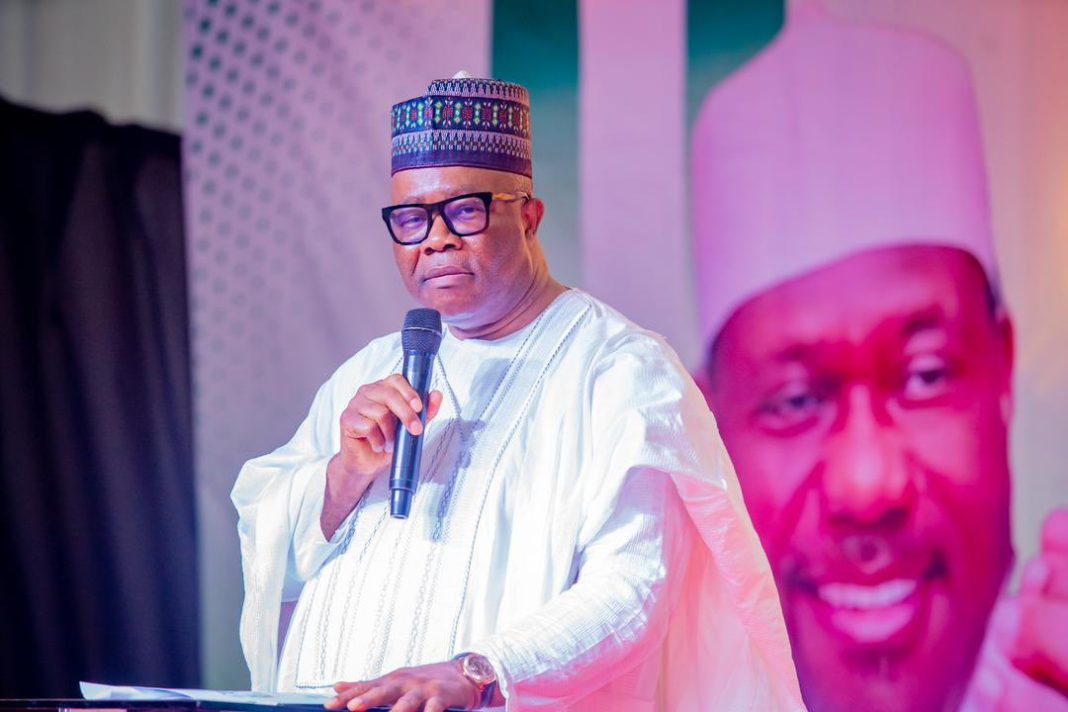ABUJA, Nigeria — Senate President Godswill Akpabio has dismissed recent comments by United States President Donald Trump accusing Nigeria of turning a blind eye to attacks on Christians, saying the claims are based on an “outdated report” and fail to reflect current realities in the country.
Addressing colleagues during plenary on Tuesday, November 4, 2025, Akpabio said the Senate had not yet formally debated Trump’s designation of Nigeria as a “country of particular concern” but would do so after consultations with the executive arm of government.
“We have not discussed the issue of President Trump yet in chambers. We shall do so with the executive because we believe it is a matter of foreign policy and diplomatic relations,” he said.
“I have refrained from taking any motion on that yet until we know the direction of government and what government intends to do.”
Trump’s remarks, made on Friday, October 31, 2025, accused Nigerian authorities of ignoring violence against Christians and suggested possible punitive action, escalating diplomatic tensions between Abuja and Washington.
Akpabio argued that Trump’s view stemmed from a 2010 fact-finding mission by US lawmakers who, he said, visited only a limited number of locations.
“The position that President Trump is taking is not based on the current realities,” he said.
“The position is based on a purported 2010 report — 15 years ago — that they said some people came on fact-finding from the US Congress and they went to only Plateau and Benue; they did not go to Zamfara and other areas.”
The Senate President stressed the need to understand Nigeria’s complex security environment beyond religious labels.
“If you go to a predominantly Muslim community, terrorists and bandits cause you to kill people — the majority of those who die there will be Muslims,” he said.
“When you enter a predominantly Christian community like Benue and Plateau and then you cause mayhem, the majority of those who will die there will be Christians.”
He added that Nigeria’s insecurity should be assessed holistically rather than through sectarian narratives.
“Nigeria’s problem needs to be weighed from all sides, and all we are looking for is peace,” he said.
“There is no Nigerian that doesn’t want to sleep with his two eyes closed, and there is no Nigerian that does not live with a Muslim or Christian in his house. Nigeria is multi-religious, multi-ethnic, and we live with one another.”
Akpabio warned that framing Nigeria’s security crisis as a religious conflict risks fuelling division and misunderstanding abroad.
“When people take issues out of Nigeria and misrepresent them to create the impression that Christians and Muslims are fighting, it is totally untrue,” he said.
In response to increasing international scrutiny, the Senate on October 14 set up a 12-member ad-hoc committee to produce a comprehensive position paper addressing the allegations of religious persecution.
The Nigerian government has maintained that violence across the country is driven by terrorism, banditry, and criminal networks rather than state-enabled religious targeting — a position echoed by security officials in recent days as the diplomatic fallout from Trump’s comments continues to unfold.







